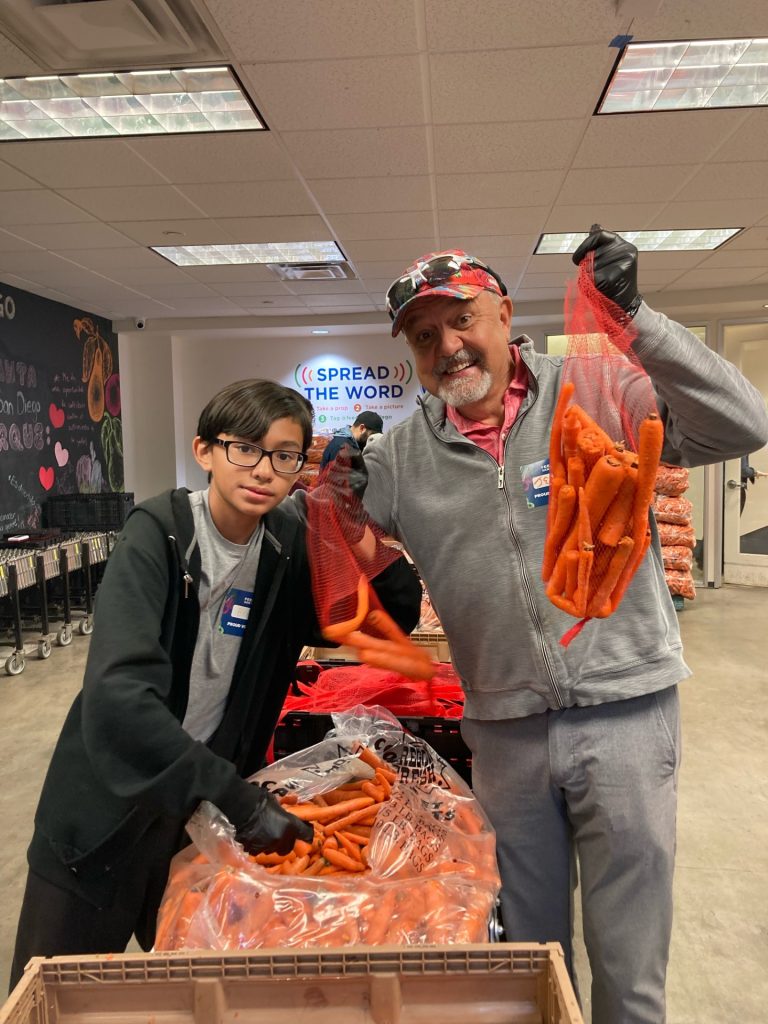Illuminating the Path to Stronger Mental Health for Children in Military Families
Amid the sacrifices of military life, there are often-overlooked struggles faced by the children in these families that need our attention. The mental well-being of children of military families is challenged by the unpredictable rhythm of deployments and frequent relocations. As they navigate the already formidable task of growing up, navigating friend groups, finding their interests, and anything they may face in school, they also deal with the uncertain dynamics that come from being a military household. There is a call to assert solutions and resources to kids in these situations.
Advocates for children’s mental health and well-being are stepping in for miliary kids. One major contributor is Big Brothers Big Sisters of San Diego. The organization understands that having a healthy support system that the child can look up to and trust has the power to make a significant impact on that child’s upbringing.
Addressing Military Children’s Mental Health
Mental health awareness and support for military children is a vital concern that warrants focused attention. Growing up in a military family comes with its own challenges that can impact a child’s emotional well-being. These factors often lead to stress, anxiety, and isolation among these children.
Studies show that various circumstances such as deployment, relocation, and other military family dynamics often necessitate psychological support. Whether it is from a civilian pediatric care facility or a military base facility, it is widely acknowledged by doctors that external support systems and programs can be useful to children in different age groups.
In a journal about the psychology of children in military families, a qualitative study shows that social support appears to be critical to the mental health and well-being of the children. Specifically, the evidence show that protective factors are likely to reduce adverse outcomes. Additionally, having structure and reliable role models, whether it is parents or mentors, is healthy.
For the past decade, especially following the Covid-19 pandemic, there has been an alarming increase in loneliness and feelings of “hopelessness” in children and teens according to the CDC. Psychologists do see that there are solutions to this crisis through various mental health services. Many parents and guardians are left wondering what kind of solutions are out there.
Providing Mentors and a Safe Space for Military Children to Thrive
Big Brothers Big Sisters of San Diego is one of the Bob Woodruff Foundation’s Spring 2023 grantees making a significant impact on military children’s mental health.
BBBS San Diego designed a first-of-its-kind program called “Operation Bigs” which provides adult mentorship to children of military families, including active duty, veteran and Gold Star families. This program, made possible by dedicated volunteers, fosters a nurturing environment where children can thrive despite the challenges they face.
Tina Rose, CEO of BBBS San Diego reflects on the organization’s response to the increased demand for mental health services, “We saw coming out of the pandemic, that the needs had increased, and we were seeing more really serious mental health needs.” The pressure to recruit new volunteers reached an all-time high during the pandemic. While more children were being signed up for the program in the past three years, the search for new volunteers that needed to be trained and matched has been challenging —yet stands as a testament to the program’s resilience and dedication.
The heart of the Operation Bigs program is the ability to give kids positive role models and someone they can trust. These mentors become more than just friends; they assume the role of older siblings, providing a safe space for children to talk about their lives and feelings. Kim Pham, program coordinator of Operation Bigs, emphasizes that “having someone who’s your person that you can automatically go to – that’s your safe space – is so special for our youth. And that’s what we try for and hope to find in the matches.”

The Success and Future of “Operation Bigs”
The program’s empirical approach to mentorship has been proven to yield positive, long-term outcomes for at-promise youth across various domains. The statistics speak volumes:
- 93% of Littles maintain or improve in Social Competence, a crucial factor in mental health and overall well-being.
- 84% of Littles maintain or improve in School Connectedness, a protective factor linked to high school graduation rates.
- 88% of Littles maintain or improve in Academic Performance outcomes, setting the stage for their educational journey.
- 72% of Littles maintain or improve in Family/Parent Connectedness, reducing risky behavior and enhancing school performance.
- The program significantly contributes to reducing risky behaviors, with high percentages of Littles not being involved in bullying, not receiving school discipline, and avoiding substance use or illegal activity.
Furthermore, the program contributed to impressive high school graduation rates, with 96% of senior Littles graduating high school this past June. Two-thirds of these graduates are heading to college, and 67% of college-bound graduates are the first in their families to attend. These achievements underscore the program’s impact on shaping a brighter future among military children.

Rose notes a Harvard study that emphasizes the dangers of loneliness and asserts that strong relationships are not only beneficial for the body but also serve as protectors of the mind. This evidence is motivation for the program to continue its mission.
The future goals for Operation Bigs are to continue expanding the operation by recruiting and training more volunteers. With an increasing amount of applications from military families looking to put their children in this program, there is an immediate demand to recruit more Bigs. BBBS San Diego requires extensive training for mentors before working with children in that capacity.
Hosting public events that bring Bigs and Littles, and their families together is important to the organization. Every May, BBBS San Diego hosts a 5K marathon at the Mission Bay Beach Club to raise money for mental health awareness month.
As long as military children are experiencing the rigors of military life, the Big Brothers Big Sisters program will remain strong support system for them, creating a path toward healthier and happier lives. The program creates lasting connections that empower youth to overcome adversity, build resilience, and dream big. Continued support ensures that the impact of mentorship reverberates across generations of military families, fostering a more compassionate and connected society for all.









